(CNN)Downtown Caracas was the scene of an alleged audacious attempt to destabilize the faltering government of Venezuelan President Nicolas Maduro this week.
A stolen police helicopter
piloted by Oscar Perez -- an officer in Venezuela's investigative
police force -- strafed the Supreme Court building and the Interior
Ministry, dropping grenades and firing shots before whirring away after
more than an hour.
It was the latest, and perhaps most bizarre chapter in Venezuela's months-long downward spiral.
Near daily clashes between government forces and protesters have paralyzed the South American country. Close to 80 people have died since the beginning of this latest round of civil unrest.
For
months Maduro has been saying that protesters are plotting a coup
against his government. With his grip on power starting to slip, some
have asked if the Hollywood-esque coup attempt was an elaborate ruse by
Maduro and his supporters.
Maduro and his supporters.
Was it staged?
Opposition leader and National Assembly president Julio Borges stoked the speculation in a radio interview.
"There
are people who say it's a hoax," Borges said. "[There are] people who
say it's for real, people who say it's angry police who are tired of
what's going on. Whatever it was, it's really serious."
The scenes captured around Caracas
looked straight out of a James Bond movie. Perez, the special forces
pilot, is also an actor and keeps a very active Instagram page. In 2015
he took part in action film, Suspended Death, which he co-produced and
starred in as an intelligence agent rescuing a kidnapped businessman.
Before
the attack began, a man who identified himself as Perez appeared in a
video online saying an operation was underway to seize democracy back
from Venezuela's "criminal government." Flanked by a group of armed men
in military fatigues and balaclavas, Perez claimed to be speaking on
behalf of a coalition of military, police officers and civil officials.
While
the helicopter hovered over Caracas, about a mile away, at the National
Assembly, lawmakers were clashing with Venezuelan National Guardsmen.
The scuffles started after the National Guard came into the building
carrying electoral boxes ahead of an upcoming vote to elect a body to
re-write the constitution.
For more than four hours, the National Guard would not allow the lawmakers to leave. There was confusion and chaos.
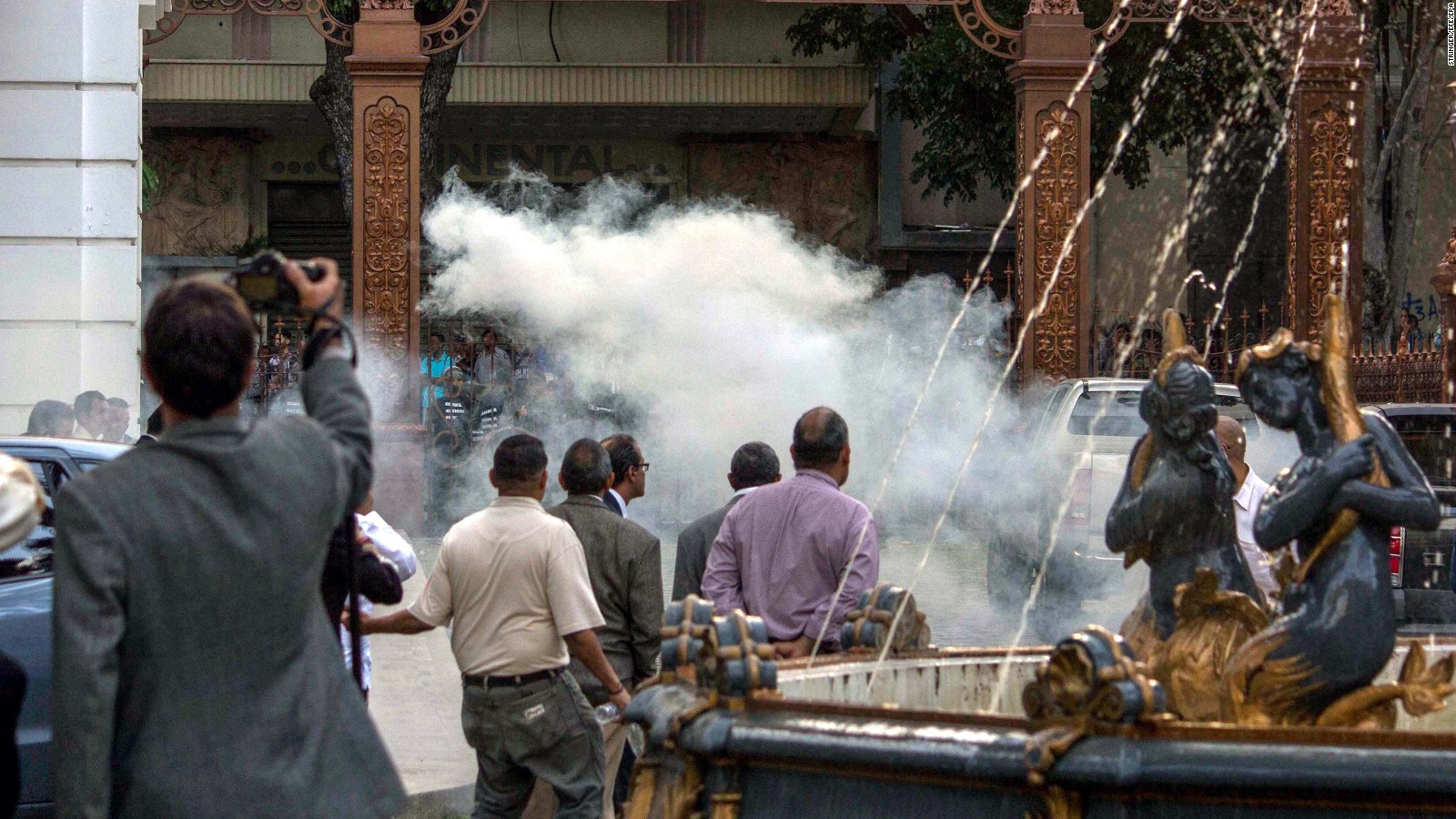
Fireworks were launched into the parliament building in Caracas on Tuesday.
Hours
later, in a late-night decision, the Supreme Court -- the same body
that had just been attacked -- quietly issued a decision that granted a
Maduro ally, Venezuelan ombudsman Tarek Williams Saab, powers to
investigate, defend and oversee human rights complaints in the country.
The same complaints would normally be handled by Attorney General Luisa Ortega Diaz. Ortega recently broke ranks with the Maduro government, accusing it of gross human rights violations.
On
any given day, any one of these things would be enough to dominate
headlines and social chatter, but on Tuesday, all everyone was talking
about was the chopper.
How did we get here?
The political turmoil comes against the backdrop of a deepening economic crisis.
Despite having the largest proven oil reserves in the world, Venezuela is fast running out of cash, and its people have struggled for years with food and medical shortages, coupled with skyrocketing prices.
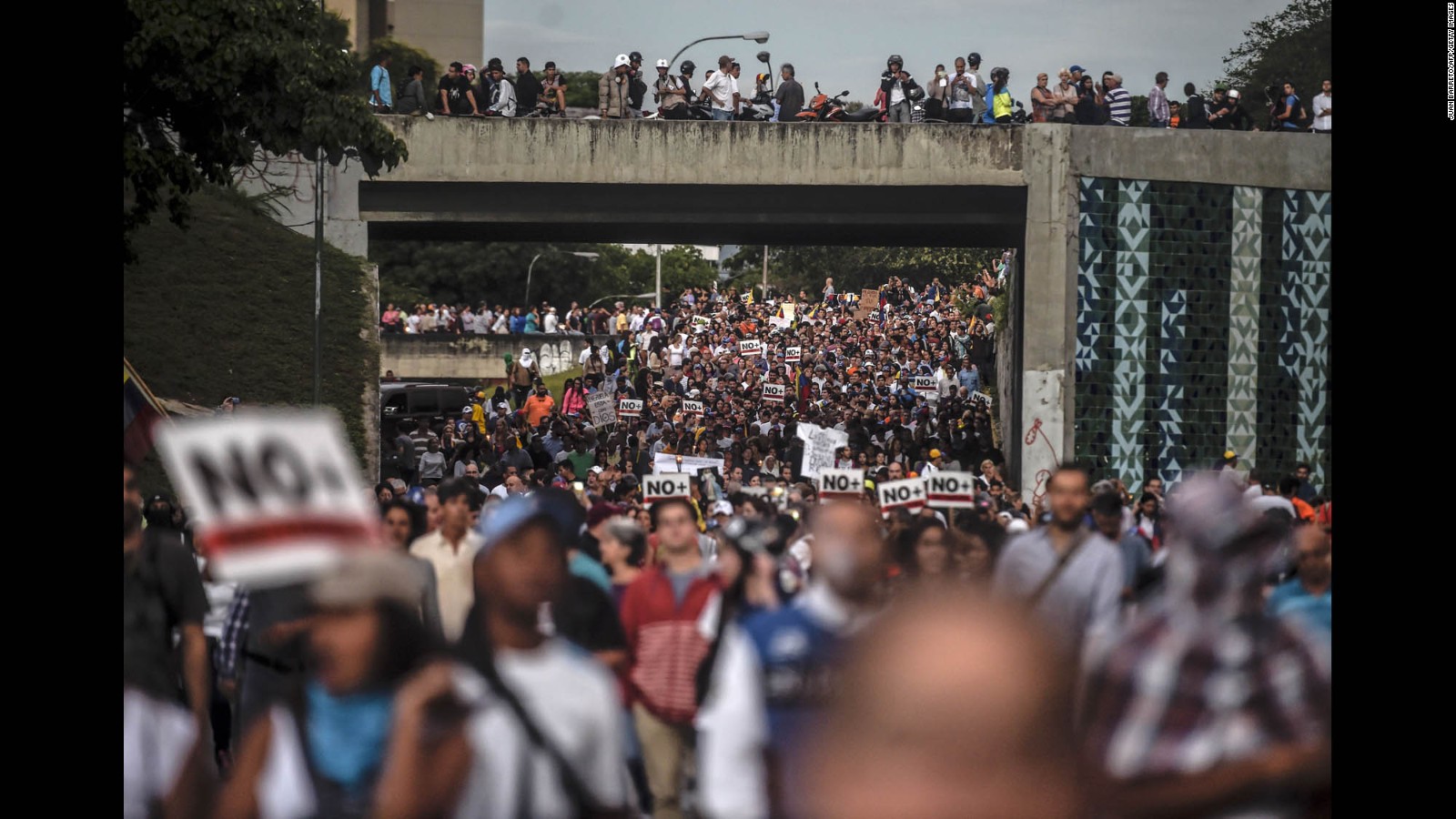
Protests have been raging in Venezuela for months.
Inflation is in triple digits, unemployment is soaring, and even basic things like toilet paper are hard to come by.
On the political front, the opposition has attempted to remove Maduro by holding a referendum vote, but the government has repeatedly blocked their attempts. It has also delayed all local and state elections.
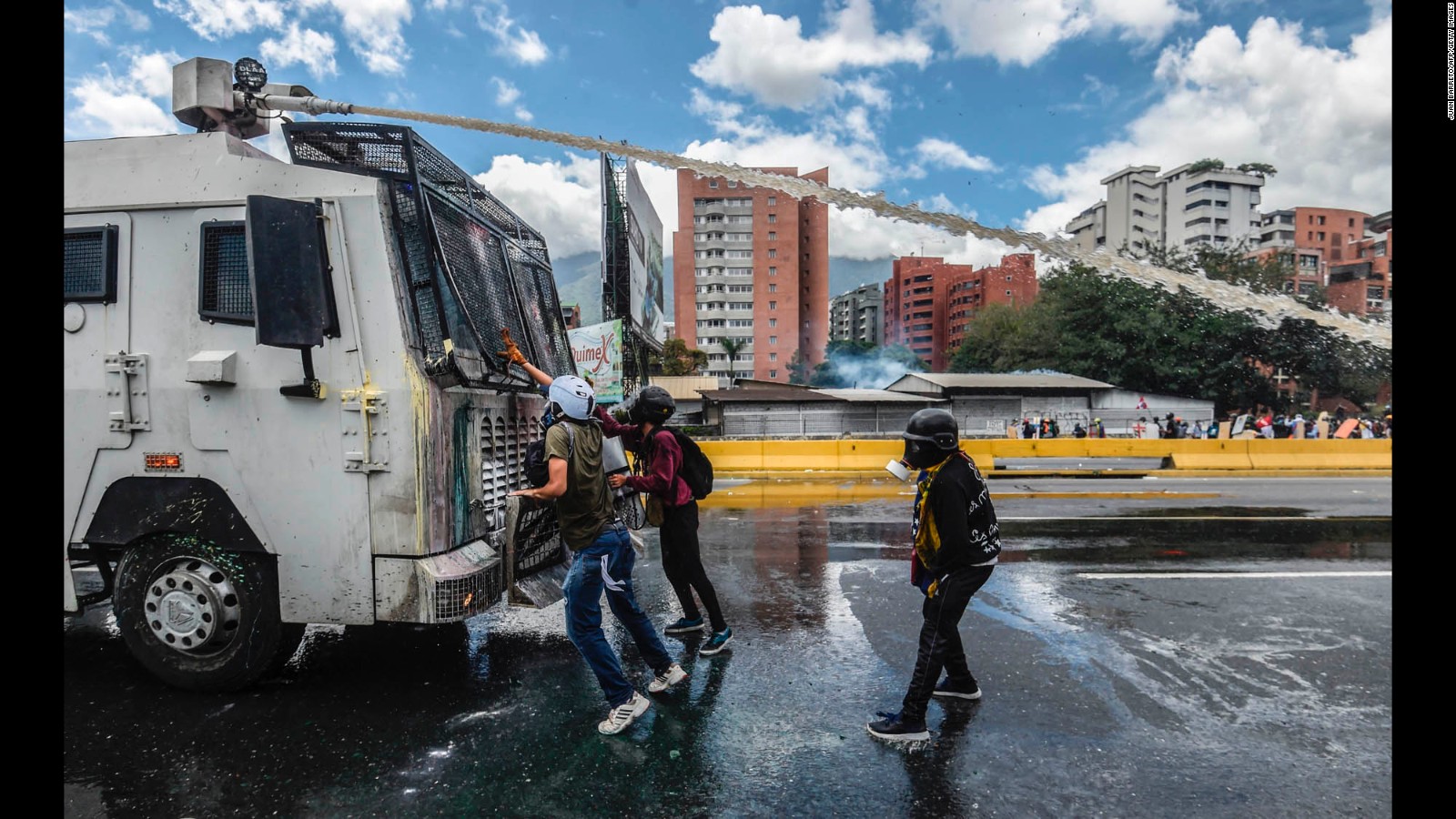
Opposition
activists stand in front of a riot police vehicle during a
demonstration against the government of President Nicolas Maduro on June
19.
In short, the opposition say Maduro has created a dictatorship.
And now, there's a bid by Maduro to rewrite the country's constitution. This, many say, is a last ditch attempt by Maduro to tighten his grip on power that is quickly eroding.
What does it mean for the rest of the world?
Venezuela
is a big player in the stability of South America, and many of the
surrounding countries are keeping a close eye on what happens to its
neighbor.
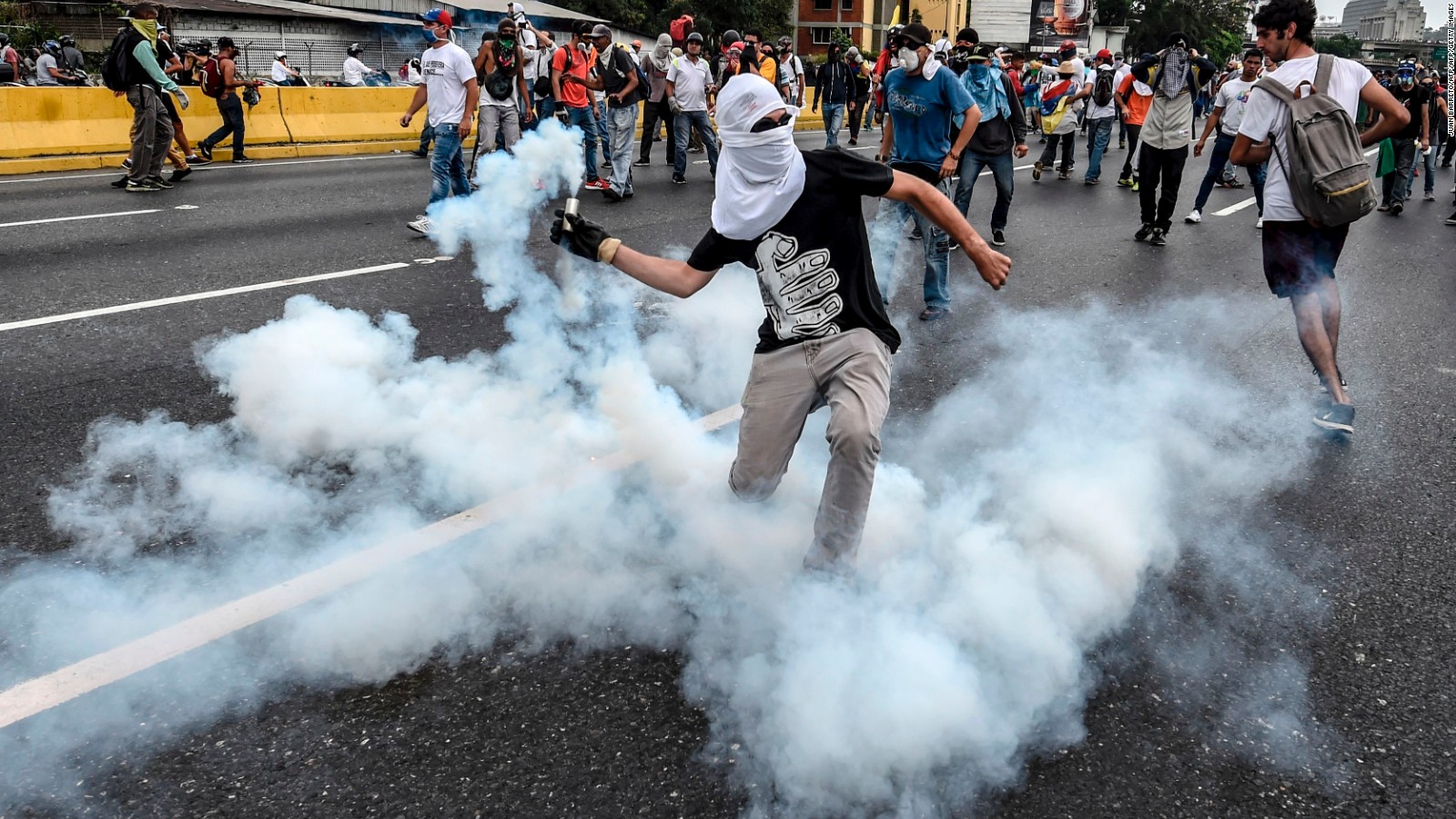
While some governments have been quick
to denounce the Maduro government, others have defended it -- mostly
because of their reliance on cheap Venezuelan oil.
Many
Venezuelans are already leaving the country, and if the situation
deteriorates further, the world could be facing another migration
crisis.
Venezuelans are the top asylum seekers in the United States.
More than 14,700 Venezuelans sought asylum in the 2016 fiscal year, up
160% compared to 2015, when 5,605 Venezuelans applied for asylum.
Brazil
and Colombia have had to deal with a massive influx of migrants into
poor rural communities that lack the resources to handle them.
Read: No such thing as a normal day for Venezuelans
In
his latest public speech to promote the constitutional rewrite, Maduro
referred directly to US President Trump warning him of an impending
migrant crisis.
"Thousands,
hundreds of thousands of Venezuelans will head to the United States and
nothing will be able to stop them" Maduro said.
How are ordinary Venezuelans coping?
Living in Venezuela right now is no walk in the park.
Food
shortages have become severe. Venezuelans have endured weeks, in some
cases months, without basics such as milk, eggs, flour, and soap.
Venezuela on brink of collapse 02:53
When there is food on the shelves, prices are so high that few Venezuelans can afford it. Many have taken to eating out of the trash.
Medicine remains in short supply,
too. Public hospitals have fallen apart, causing people, including
infants, to die because of the scarcity of basic medical care.
What's Maduro's position on this?
Maduro,
54, has been defiant, taking a confrontational tone with members of the
opposition and protesters, whom he calls "vandals and terrorists."
Venezuelan
ministers accuse the international community and the US of leading an
"economic war" towards the country, effectively cutting Caracas out of
the international investments circles.
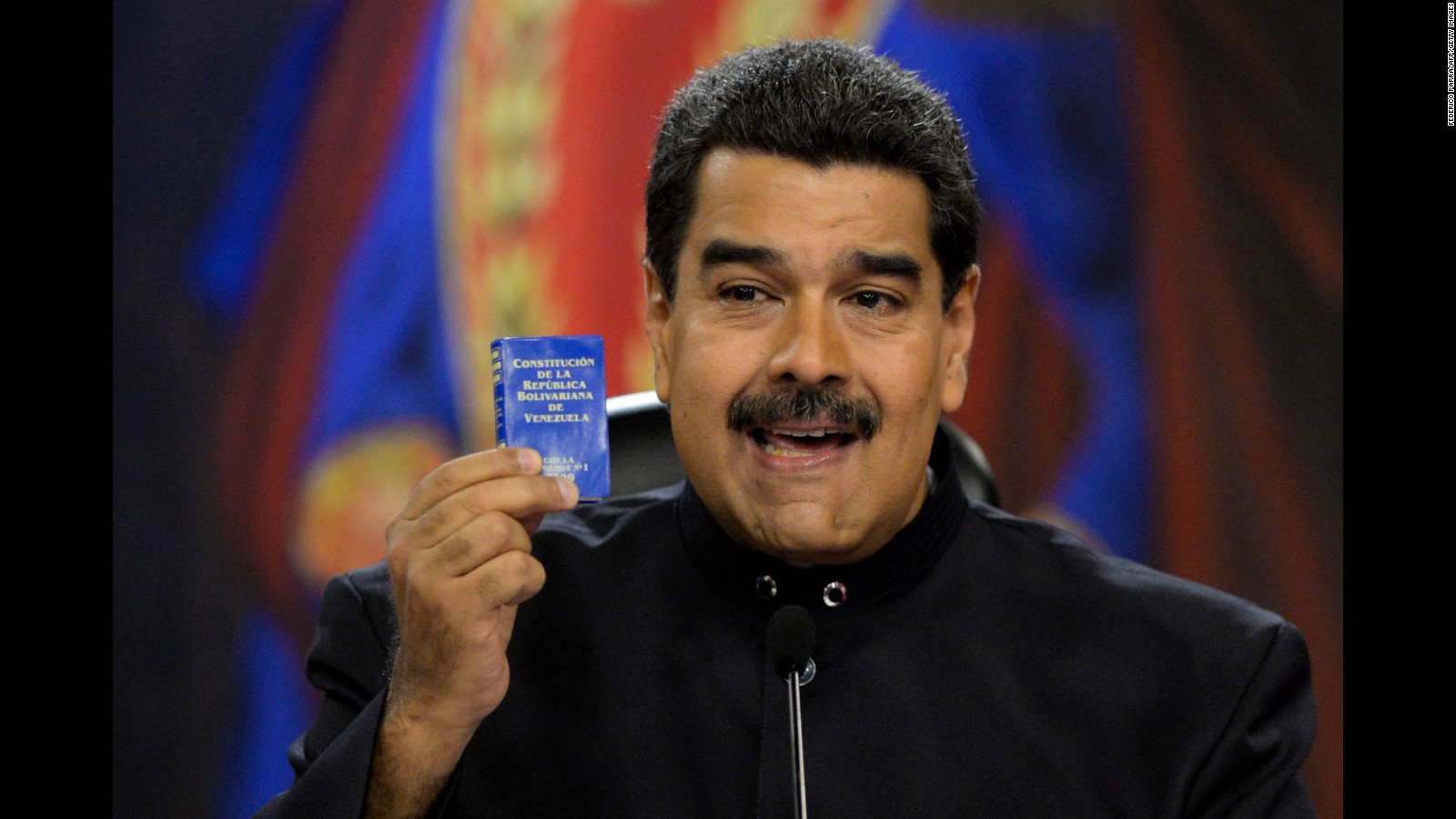
Venezuelan
President Nicolas Maduro holds up a copy of the Venezuelan constitution
during a news conference at the presidential palace in Caracas on June
22.
Maduro has denounced there is an international plot to depose him of his power.
The
government has blamed old and new foes for the this latest coup
attempt. Government officials have linked Perez to the CIA, Colombian
weapon supply routes and to a former Interior Minister turned Maduro's
critic.
How might things play out from here?
The
next key date for Venezuela is July 30, when the election to select the
members who will re-write the constitution will take place.
Maduro says the effort will bring peace and stability to the country.
Read: Venezuela is a cautionary talk, Pence says
The opposition is adamant that the election will not take place because of widespread lack of support for the initiative.
It's a stand-off.
On one side the protesters vow to continue, on the other, the government vows to push on.
Comments
Post a Comment